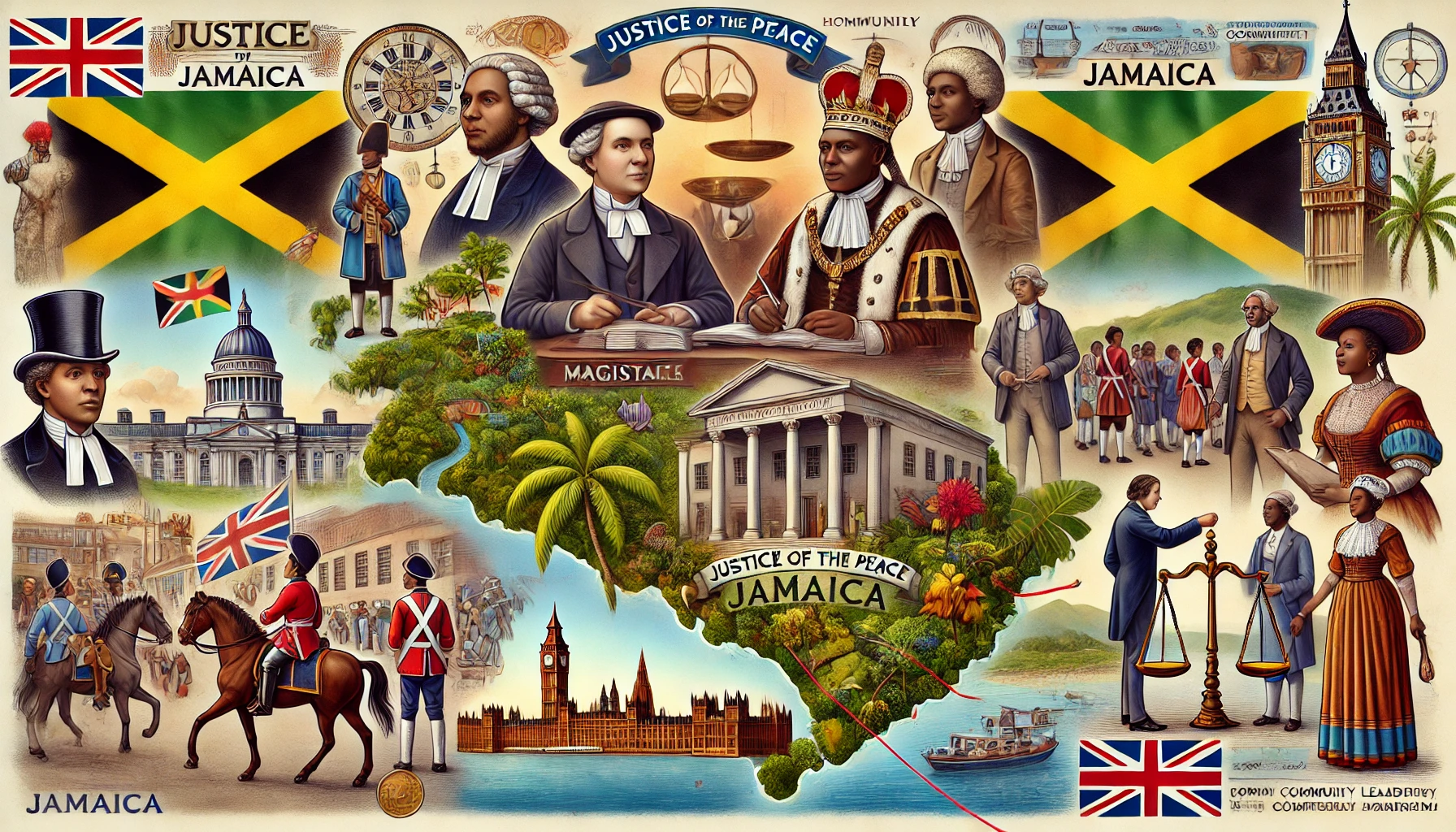The history of the Justice of the Peace (JP) in Jamaica reflects the evolution of the country’s legal and administrative systems, rooted in the island’s colonial past and adapted to modern governance. The role has its origins in the British system of local justice, introduced to Jamaica during the colonial era.
Colonial Beginnings
- Introduction by the British: The concept of Justices of the Peace was brought to Jamaica by the British after they took control of the island from the Spanish in 1655. The system was modeled after the English judicial system, where JPs served as local magistrates.
- Role in Colonial Administration: During the 17th and 18th centuries, JPs were often wealthy planters or members of the colonial elite. They played a significant role in local governance, serving as magistrates, adjudicating minor disputes, and overseeing law enforcement. They also held administrative duties, such as supervising parish affairs and infrastructure.
19th Century Changes
- Abolition of Slavery: The role of JPs became more significant after the abolition of slavery in 1834. JPs were instrumental in maintaining order and adjudicating disputes in the period of transition from slavery to free labor.
- Expansion of Responsibilities: Over time, their responsibilities grew to include functions such as witnessing documents, taking affidavits, and certifying legal documents. They also served as a bridge between the government and local communities.
Post-Independence Evolution
- Transition to Modern Governance: After Jamaica gained independence in 1962, the role of the JP was redefined to align with the needs of a modern democratic society. JPs remained an important part of the justice system, particularly in rural areas where access to formal judicial services was limited.
- Legislation: The role and functions of JPs are governed by laws such as the Justices of the Peace Act and other regulations, which outline their duties and provide guidelines for their appointment and conduct.
Contemporary Role
- Community-Based Justice: Today, JPs in Jamaica are community leaders who provide voluntary services to assist in the administration of justice. They are responsible for:
- Certifying documents such as affidavits, statutory declarations, and passport applications.
- Visiting police stations to ensure the welfare of detainees.
- Mediating disputes through restorative justice programs.
- Selection Process: The appointment of JPs is based on their reputation for integrity and service within their communities. Candidates undergo training and are required to pledge impartiality and dedication to justice.
Significance
The institution of the Justice of the Peace remains a vital link in Jamaica’s justice system, especially in bridging gaps in access to justice in underserved communities. JPs play a key role in fostering trust between citizens and the legal system, reflecting the historical legacy and continued importance of local governance in Jamaica.
This response, including any images or descriptions provided, is for informational and illustrative purposes only. It is not intended to serve as legal or historical advice. While efforts have been made to ensure accuracy, the information may not comprehensively represent all historical details or perspectives. Always consult reliable sources or professionals for specific inquiries.



Leave a Reply